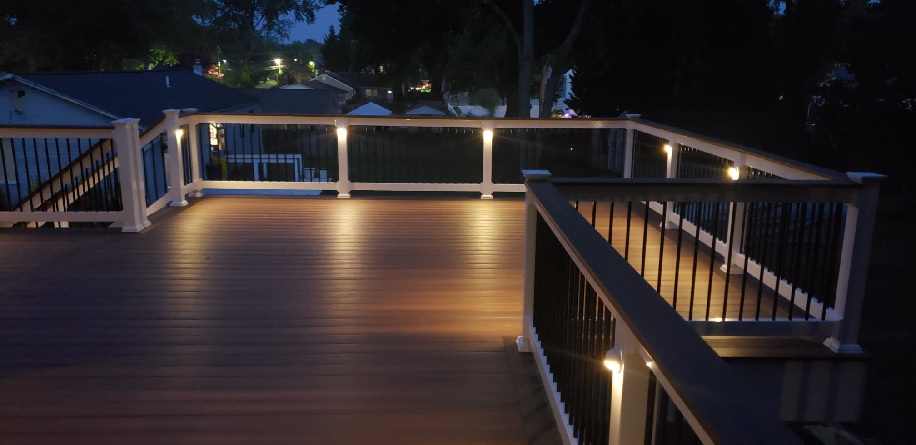Maximizing investment and improving quality of life depends on being updated about new trends and important advancements as the terrain of homeownership evolves in 2025. Homeowners need to adjust to these changes due to technological advancements, policy changes regarding climate change, and a shift toward sustainability. Understanding the implications of these changes will enable homeowners to make informed decisions that assist the environment and their finances. This article will highlight five critical insights that every homeowner should understand in order to navigate this dynamic landscape effectively.
1. Embracing Energy Efficiency and Sustainability
In 2025, energy efficiency and sustainability will remain at the forefront of home improvement priorities. During home renovations or new construction, energy-efficient appliances, smart home technology, and environmentally friendly materials are increasingly becoming a priority for homeowners. Energy-efficient appliances not only save energy use but also help to cut utility costs, therefore benefiting finances over time. Including smart home technologies also lets homeowners maximize energy use, control consumption, and automate systems for maximum efficiency. Using sustainable materials in house building and renovation—such as locally produced or recycled goods—not only reduces environmental effects but could also improve property value. By implementing these strategies, homeowners can improve the comfort and affordability of their homes while also positioning themselves as conscientious environmental stewards.
2. The Rise of Smart Home Technology
The widespread adoption of smart home technology has changed how homeowners interact with their living spaces. By 2025, smart home technology will be widely used, offering increased efficiency, security, and convenience. Increased comfort and energy savings result from homeowners remotely controlling lighting, heating, cooling, and security systems through smartphones or voice-activated assistants. Devices can operate seamlessly when integrated with home automation systems, resulting in environments that are customized to each user’s preferences. Furthermore, developments in artificial intelligence (AI) and machine learning help smart home systems to learn from user behavior, thereby optimizing energy use and raising general efficiency. In order to keep their homes competitive in an increasingly connected world, homeowners should think about investing in smart home solutions that suit their needs and lifestyles as these technologies continue to evolve.
3. Understanding the Importance of Home Maintenance
Maintaining the value of a house and its safety depends on regular home maintenance. Homeowners should prioritize proactive maintenance techniques, extending the lifetime of important systems and components in 2025. This entails regular roof, HVAC, plumbing, and electrical system inspections to spot possible problems before they get worse. Additionally, helping a house last and look good are seasonal maintenance chores, including exterior painting, HVAC service, and gutter cleaning. To ensure nothing is overlooked, homeowners should design an extensive maintenance schedule with required tasks and timelines. Timely house maintenance helps homeowners avoid expensive repairs and improve the general quality of their living space, therefore raising the property value and enjoyment.
4. The Impact of Local Policies and Market Trends
Homeowners seeking to optimize their investments have to remain updated on local policies and market trends. Many cities plan to implement policies that promote sustainable living and reduce carbon footprints by 2025. These could include laws promoting energy-efficient buildings, specifications for integrating renewable energy sources, and financial incentives for environmentally friendly home improvements. Homeowners should be familiarized with these rules as adherence to them could have major financial advantages and raise home values. Moreover, keeping an eye on real estate market trends—such as changes in consumer preferences toward environmentally friendly homes—can guide investment plans and renovation efforts. Participating in community meetings and interacting with local real estate experts can provide insightful analysis of these trends that guarantee homeowners remain knowledgeable and ready to make informed decisions.
5. Solar Power is a Game-Changer
Renewable energy sources, particularly solar power, are becoming mainstream. The installation of solar panels has shifted from a niche choice to a practical solution for homeowners looking for energy independence and long-term savings. For instance, solar panel installation in Chicago has become an increasingly popular option as citizens take advantage of state and federal incentives. By 2025 solar panels are more reasonable than ever and with financing options and rebates widely available, the initial investment pays off quickly. Solar energy not only decreases electricity bills but also reduces carbon footprints, making homes more attractive to eco-conscious buyers.
Conclusion
In conclusion, homeowners in 2025 face a landscape full of opportunities and challenges. Homeowners can improve their living areas and make wise, sustainable decisions by embracing energy efficiency, using smart home technology, prioritizing maintenance, and understanding local legislation and market trends. The incorporation of these critical insights will not only improve quality of life but will also help to create a more sustainable future for communities and the environment.
Read More: How to Use Accent Lighting to Add Depth and Drama to Your Living Spaces



